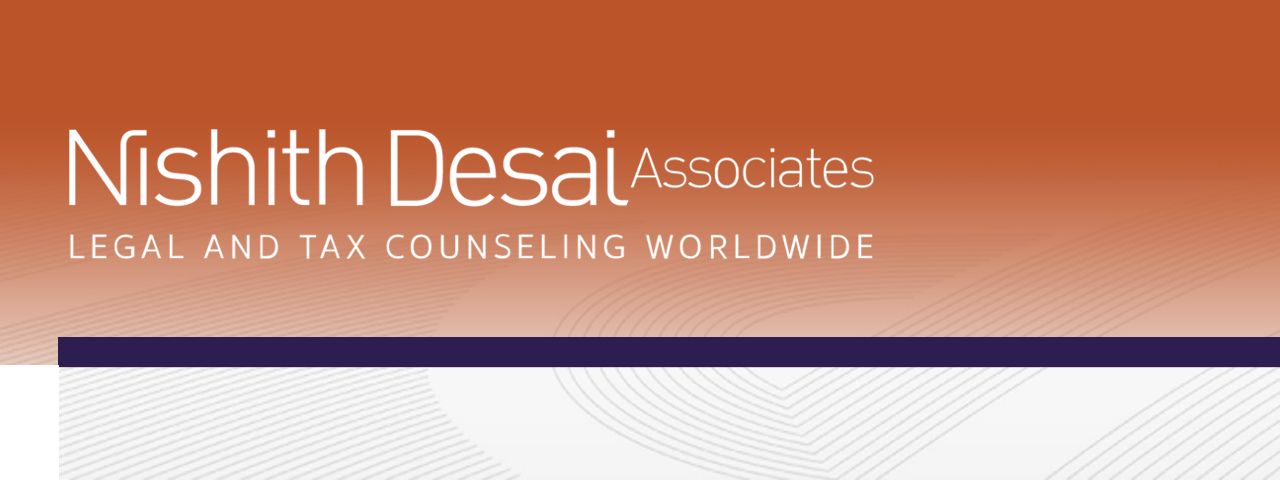|
|
|


NFRA plays an important role in overseeing chartered accountants, ensuring adherence to the highest standards of professionalism and ethics.
NFRA regularly releases inspection reports, offering valuable insights into areas of improvement for audit firms.
The NFRA’s diligence, reflected in inspection reports and enforcement actions, actively contributes to a culture of caution, transparency, and accountability. This aligns with the narrative of sustainable and responsible business practices in India.
Introduction:
In the intricate web of financial transactions that define the global economy, trust is an essential factor that holds it all together. Ensuring the accuracy, transparency, and reliability of financial information is paramount, and at the heart of this responsibility lies the National Financial Reporting Authority (NFRA). Tasked with overseeing the work of statutory auditors, the NFRA plays an important role in upholding the highest standards of professionalism, ethics, and quality in financial reporting.
At its core, the NFRA is an independent regulatory body established under the Companies Act, 2013 (CA 2013) on October 1, 20181, with the primary objective of ensuring the reliability and credibility of financial information. One of its key functions is to monitor and enforce compliance with accounting standards and auditing standards by certain classes of companies2 in the country. This extends to statutory auditors, who are integral players in the financial reporting ecosystem.
Crucial Role of NFRA:
Chartered accountants, often considered the backbone of the financial sector, hold a position of immense responsibility. The NFRA, amongst other things, oversees their work to ensure that they adhere to the highest standards of professionalism and ethical conduct. This involves setting and enforcing auditing and accounting standards, as well as conducting investigations into potential misconduct.
The regulatory framework established by the NFRA aims to foster trust in financial reporting, which is essential for the functioning of businesses and the overall economic well-being. By holding chartered accountants accountable for their work, the NFRA contributes to the resilience and stability of the financial system.
The Institute of Chartered Accountants of India (ICAI) is the premier professional body that regulates the chartered accountancy profession in the country. While ICAI plays a significant role in setting standards and guidelines for its members, the NFRA provides an additional layer of oversight. The authority reviews the quality of audits conducted by chartered accountants, ensuring that they meet the prescribed standards.
In cases of suspected misconduct or non-compliance, the NFRA has the authority to conduct investigations into the affairs of chartered accountants and audit firms. This includes the power to impose penalties and take corrective actions to address any deficiencies identified. The enforcement mechanism acts as a deterrent, emphasizing the importance of adherence to established standards and ethical practices. Through rigorous oversight, the NFRA aims to prevent conflicts of interest and any compromise on the integrity of financial reporting. This not only protects the interests of stakeholders but also fosters a culture of trust in the financial markets, strengthening the foundation of economic growth.
Suggesting measures for improvement:
Based on its review and inspection, the NFRA may suggest measures for improving the quality of audit and require its implementation in a time-bound manner. The findings of such review and inspection are made public on the NFRA’s website.
Recently, the NFRA unveiled its inspection report for the year 2022,3 offering valuable insights into areas of improvement for prominent audit firms including the Big 4. The reports delve into the governance structures and internal processes of these prominent entities, with a specific emphasis that entities associated with audit firms refrain from providing non-audit services to their clients. This precautionary measure aims to avert potential conflicts of interest, marking a significant stride towards ensuring the integrity of audit processes.4 Further, the NFRA’s inspection reports shed light on areas where potential lapses could occur. The audit firms have provided their responses to the NFRA on the areas of concern and appreciated NFRA’s suggestions, which have allowed them to constructively and qualitatively improve their systems and processes.
As the regulatory body continues its oversight role, these regular inspection reports will serve as a crucial tool for enhancing accountability and transparency in the accounting and auditing profession in India.
Investigations and recent rulings:
The NFRA also has the power to investigate, either suo moto or upon a reference by Central Government, into the matters of professional or other misconduct committed by any member or firm of chartered accountants. Recently, the NFRA has taken actions against two chartered accountants for their involvement in professional misconduct during the statutory audit of Dewan Housing Finance Corporation Ltd (“DHFL”) for the fiscal year 2017-185. The engagement partner faces a 10-year debarment, while the engagement quality control review partner, is barred for a period of 5 years. Additionally, the NFRA imposed a penalty of INR 500,000 each.
In the above case, the NFRA’s investigation revealed that the auditors fell short of meeting the requisite auditing standards and, more significantly, violated provisions outlined in the Companies Act, 2013, across critical facets of the audit. The genesis of the audit quality review lies in allegations of the misappropriation of public funds amounting to INR 310 billion by DHFL directors. These stringent actions by the NFRA form part of a broader series of orders targeting auditors associated with DHFL, which defaulted in May 2019.
In another notable instance, the NFRA has levied a penalty of INR 500,000 on a Chartered Accountant (CA) or Engagement Partner (EP)6 who conducted an audit under circumstances of “serious conflict of interest” and failed to deliver appropriate opinions. The CA/EP, responsible for signing the Independent Auditor’s Reports and Financial Statements of S. Kumars Nationwide Ltd. (“SKNL”), is debarred from undertaking any audits related to financial statements or internal audits for any company or body corporate for a five-year period. The NFRA found the EP in violation of several professional standards and the Code of Ethics, as he issued an audit report to SKNL while holding and/or controlling shares of SKNL through a family-owned company, thereby compromising his independence as the statutory auditor. These stern measures underscore the NFRA’s commitment to preserving the integrity of financial audits and maintaining public trust in financial reporting.
Conclusion:
In the intricate dance of finance, the NFRA emerges as a steadfast partner, dedicated to ensuring that statutory auditors adhere to the highest standards of professionalism, ethics, and quality. As a guardian of financial integrity, the authority’s role is indispensable in maintaining the trust that underpins the global economy. The fruits of the NFRA’s diligence is already becoming evident, with the release of inspection reports for prominent firms and the imposition of penalties on the CAs for professional misconduct. These measures actively contribute towards a culture of caution and transparency. Moreover, the NFRA’s role is becoming increasingly significant in the context of Environmental, Social, and Governance (“ESG”) considerations. The objectives of NFRA align well with the narrative of sustainable and responsible business practices. The investors, stakeholders, and the public are increasingly recognizing the importance of a transparent financial reporting as an integral component of corporate responsibility. In essence, NFRA stands as a catalyst for a more transparent, accountable, and sustainable financial future for India.
–
Mohammad Kamran,
Maulin Salvi and
Sahil Kanuga
You can direct your queries or comments to the author
1Section 132 of the Companies Act, 2013
2Rule 3 of the National Financial Reporting Authority Rules, 2018
3https://nfra.gov.in/document-category/inspection-reports/
4Also Section 144 of the Companies Act
5Order No. 63/2023 issued by NFRA dated December 5, 2023 - https://cdnbbsr.s3waas.gov.in/ s3e2ad76f2326fbc6b56a45a56c59fafdb/ uploads/2023/12/ 202312062007647446.pdf
6Order No. 65/2023 issued by NFRA dated December 20, 2023 - https://cdnbbsr.s3waas.gov.in/ s3e2ad76f2326fbc6b56a45a56c59fafdb/ uploads/2023 /12/202312201285552750.pdf
Disclaimer
The contents of this hotline should not be construed as legal opinion. View detailed disclaimer.
Research Papers
Compendium of Research Papers
ESG and Human Rights
ESOPs and Other Benefits Plans for Employees in India
|
NDA Hotline |
Video |
NishithTV |



